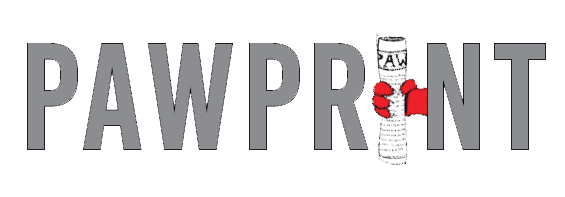Cyber Fusion Center Blasts Maryville into the Future
While many improvements were made around campus this summer, the all-new Cyber Fusion Center is the most technologically advanced. As the name suggests, the Cyber Fusion Center, CFC, was constructed for use by students in Maryville’s cyber security program.
It is difficult to classify the Cyber Security Center using common terminology. Dustin Loeffler, JD, Associate Professor of Cyber Security and Information Systems sees the center as an evolution of the traditional classroom.
“This represents a general trend where the classroom is evolving into experimental learning rooms,” Loeffler said.
While students receive credit for their work in the CFC, there are no lectures given or tests taken within the space. Instead, students utilize the CFC to provide their services, free of charge, to local charities, schools and nonprofits. Both the students and the client organizations benefit greatly from this. “Cyber Fusion Center provides students with hands-on, tangible skills, which put them ahead of their peers for internships and full-time opportunities,” Loeffler said. Meanwhile, the organizations are given protection against hacking while being able to utilize their money for the cause they are dedicated to.
In addition to providing cyber security, the CFC offers additional services via the digital forensics bench, Loeffler’s favorite feature. “This area allows us to do security testing on hard drives and mobile devices at the forensic level. For example, if a teacher [of] one of our clients has a hard drive that fails, then we have the ability to recover data via our forensics tools,” says Loeffler. This service usually costs 3,000 to 5,000 dollars, but is free through the CFC. He also thoroughly enjoys the smart glass window, which changes from translucent to clear at the flip of a switch.
Jon Tock, cyber security minor and president of the CyberSaints club, echoed the feelings of his professor. “The Cyber Fusion Center puts Maryville a step ahead of any other university. This gives the students tangible skills and gives us hands-on experience for our futures that something in a book could never teach us,” Tock, senior, said. Adding to their excitement is the pure amount of technology at their fingertips.

In addition to the forensics bench, the CFC has four workstations. Each is equipped with three monitors, a Mac mini, two keyboards and an Apple magic mouse. The workstations are also connected to micro PCs that run Windows and Linux. This allows the students to work on all three major operating systems, not just MacOS. Allowing clients to talk with the students as if they were in person is a Double 2 Personal Telepresence Robot that can be driven remotely. Four televisions equipped with Apple TVs line the back wall, and Loeffler mentioned that a touch monitor is on order. There is even a virtual reality headset that provides a unique learning experience and some cool virtual field trips. “The other cool piece of tech is the Oculus Rift, which allows me to teach my students about networking visually. Also, we can do cool things like tour the Louvre museum in virtual reality,” Loeffler said.
The CFC will be utilized in several other ways. Various guest speakers will be holding court with students, some in person and some using the Double 2, each semester. CyberSaints will be hosting weekly movie nights every Wednesday, open to everybody. These nights will be featuring technology-based movies and TV shows, such as Mr. Robot, which was shown last Wednesday.
Located on the second floor of the ABAC right before entering Reid, the room housing the Center was previously a conventional classroom. The CFC was proposed by Loeffler in fall 2015 and created over the span of five weeks this summer. The physical construction took three weeks and the technological implementation took another two weeks. Eventually, the Cyber Security program intends to have the room full of workstations.
If you are interested in becoming a cyber security major or minor, email professor Loeffler at dloeffler@maryville.edu or speak with your advisor.






